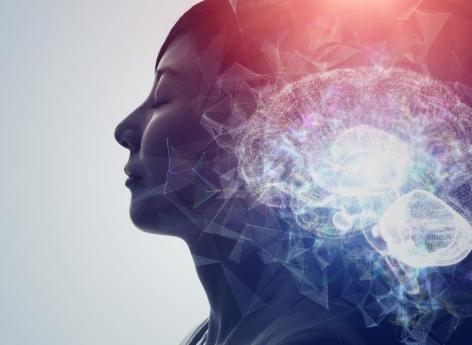Primary
- While participants were asleep, the researchers were able to decode brain function by combining artificial intelligence, MRI and electroencephalography.
- Certain parts of the brain function and communicate during sleep, strengthening the connection between neurons.
- They found that our brain picked up more “good” memories and therefore integrated them more easily.
What does our brain do during the long hours we sleep? It paints our dreams… but it also improves our memory, reveals new study by scientists at the University of Geneva (UNIGE) Natural linksThis opens a window into the mind of the sleeping man for the first time.
A combination of artificial intelligence, MRI and EEG
The researchers explained that they had developed an artificial intelligence capable of decoding the activity of the brain during sleep. By combining functional magnetic resonance imaging (FMRI) and electroencephalography (EEG), he shows that during our deep sleep, our brain processes thousands of information processed during the day. During deep sleep, our brain no longer receives external stimuli and can evaluate all of these memories and retain only the most effective ones. To do this, it establishes an internal dialogue between its various parts, particularly the hippocampus (the part of the brain that stores temporary traces of recent events) and the cerebral cortex.
To better understand this process, researchers have developed a decoder “The ability to understand the function of the brain in deep sleep and what it is like, Says Virginie Sternnich, researcher and co-author of the study. In particular, we wanted to see to what extent positive emotions play a role in this process. ”.
To complete the experiment, the scientists put the volunteers through an MRI scan in the evening and they played two video games: “Who is this?” A 3D maze, from which you need to find a way out. These games are fake without the volunteers knowing, so only one of the two mental games can be won to relate the winning game with positive emotions.
Then the MRI volunteers slept for an hour or two – the length of the sleep cycle – and their brain function was re-recorded. “We combined an electroencephalogram (EEG) that measures sleep levels and a functional MRI that captures the activity of the brain every two seconds, and then uses a neurological decoder to determine if the activity of the brain observed during play is shown. Spontaneously during sleep. “Sophie Schwartz, who led the business, explains.
Rewards will be saved while you sleep
Compared to the MRI images of the waking and sleeping phases, the scientists observed that during deep sleep, the brain activation patterns were very similar to the images recorded during the play phase. “It’s very clear that the brain has renewed the winning game and is not lost by reactivating the parts used the previous day. As soon as we fall asleep, the activity of the brain changes., Virginia Sternenich.
Two days later, the volunteers took a memory test in both games. Again, more and more areas of the brain associated with sports that are activated during sleep improve memory performance. Thus, the memory associated with the reward will be greater when activated automatically during sleep. Through this work, the Geneva team opens up a new perspective on the study of the sleeping brain and the incredible work it does every night.

“Travel maven. Beer expert. Subtly charming alcohol fan. Internet junkie. Avid bacon scholar.”







More Stories
The ranking of the best survival horror games selected by the IGN US editorial team has been released! Resident Evil RE:2 ranked first
Enjoy a hot cigarette while looking at whales and tropical fish under the sea ⁉︎ “Ploom Dive” is an amazing spatial video experience using Apple Vision Pro
Apple Watch now supports sleep apnea, watchOS 11 released – Impress Watch